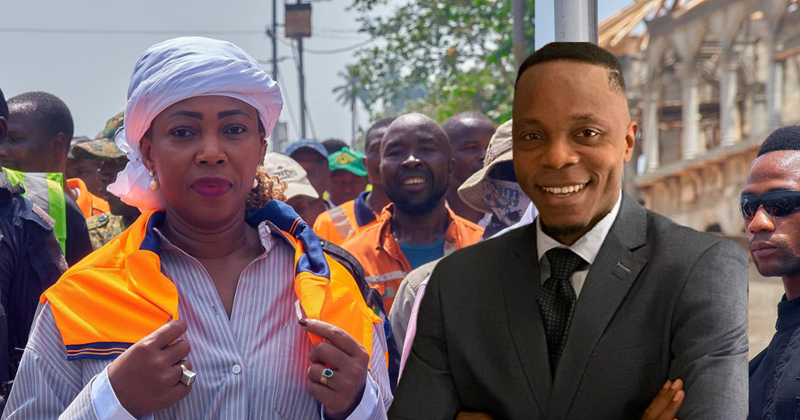Sierra Leone’s political landscape is facing heightened tensions following a series of inflammatory remarks from high-profile figures, including government officials and critics, raising concerns about deepening divisions and governance challenges.
Chief Minister David Sengeh recently branded the main opposition All People’s Congress (APC) as “unprogressive,” accusing the party of obstructing national development. The comment has further strained relations between the ruling Sierra Leone People’s Party (SLPP) and the APC, which has long been a rival force in the country’s politics.
Meanwhile, First Lady Fatima Bio sparked controversy by referring to ministers in her husband’s government as “dogs,” a remark that has drawn mixed reactions. While some view it as a blunt critique of inefficiency, others see it as an alarming sign of internal discord within the administration.
Adding to the turmoil, prominent lawyer and activist Michael Basita accused the government of being filled with “sycophants” and “yes men,” claiming that such a culture stifles accountability and genuine decision-making. His remarks were met with a sharp rebuttal from SLPP supporters, who dismissed the criticism as politically motivated.
In another blow, an unnamed investor reportedly labeled government ministers as “useless,” citing bureaucratic delays and poor policy implementation as key frustrations for businesses. This sentiment reflects growing concerns over Sierra Leone’s economic management and investment climate.
The public’s reaction to these statements has been one of dismay and, in some cases, outrage. The perception of government officials engaging in personal attacks and derogatory language fuels public distrust in the political process. When leaders resort to such language, it can be interpreted as a sign of weakness or desperation, further undermining their credibility. The investor’s blunt assessment of “useless” ministers, though perhaps rooted in frustration, mirrors a sentiment shared by many citizens who feel their concerns are being ignored.
Sierra Leone, a nation striving to consolidate its post-conflict peace, cannot afford to be further divided by inflammatory rhetoric. The senior advocate’s observation about “sycophants” and “yes men” points to a potential culture of conformity that stifles dissent and critical thinking. This lack of robust debate and accountability can hinder effective governance and exacerbate existing societal divisions.
The cumulative effect of these statements is a heightened sense of political instability. The potential for social unrest increases when citizens feel their leaders are more concerned with scoring political points than addressing pressing national issues. This can lead to a breakdown of social cohesion and undermine efforts to promote national unity.
The focus on personal attacks and derogatory language diverts attention from crucial policy debates and development initiatives. When political discourse is dominated by such rhetoric, it becomes difficult to address pressing issues such as poverty, unemployment, and healthcare. This can hinder the government’s ability to implement effective policies and achieve its development goals.
With Sierra Leone still recovering from past political crises, including disputed elections and economic struggles, the latest verbal clashes threaten to destabilize the fragile political ecosystem further.
To mitigate the negative implications of this inflammatory rhetoric, a concerted effort is needed to promote responsible leadership and constructive dialogue. Key stakeholders, including politicians, civil society organizations, and the media, must play a crucial role in fostering a culture of respect and tolerance.











